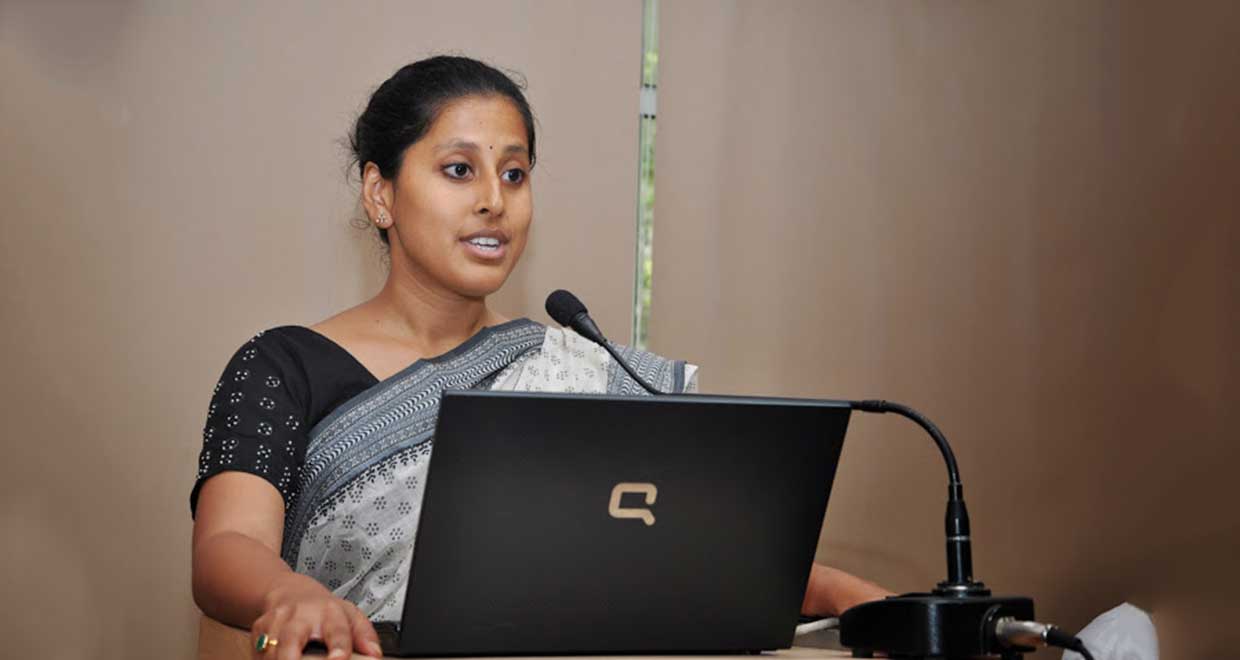 Ms. Rwitwika Bhattacharya graduated from Harvard University, Kennedy School of Government. She has previously worked as an Associate at the World Bank and is the founder and currently the CEO of the Swaniti Initiative, a non-profit that delivers development solutions to elected officials in India.
Ms. Rwitwika Bhattacharya graduated from Harvard University, Kennedy School of Government. She has previously worked as an Associate at the World Bank and is the founder and currently the CEO of the Swaniti Initiative, a non-profit that delivers development solutions to elected officials in India.
In this interview, we asked her about:
- working with the World Bank;
- authoring two books;
- her work through the Swaniti Initiative; and
- the involvement of lawyers in her start-up organization.
Could you please introduce yourself, professionally and academically, to our readers?
I am the Founder and CEO of Swaniti Initiative, a non profit that delivers development solutions to Members of Parliament in India. Our goal is to provide them with either knowledge insight or implementation support on development issues. Prior to Swaniti, I was working at the World Bank and UNFPA. I have a Master’s in Public Policy from Harvard and Bachelor’s in political science and economics from Wake Forest University.
You have considerable exposure when it comes to working at the World Bank. How was your experience of working at the World Bank? What was your area of work there? Was there any particular reason for your deciding to leave?
The World Bank is a phenomenal place to work and I was very fortunate to have gotten this opportunity. The reason that the World Bank is so great because you are surrounded by problem solvers who are academics and practitioners, working on complex issues. To be a part of an environment where you find such driven people, you begin to also focus on understanding potential ways to solve problem. My area of work was labor economics and I ended up doing a lot of research work on job creation. I was lucky enough to co-author two books during my time at the Bank. The reason I left the Bank was because I was passionate about working on governance and polity in India. When I saw there were no such organizations within the World Bank, or even in India, I started one.
You have co-authored two books during your stint at the World Bank. Can you elaborate on the two books written by you?
Sure. My first book was on Frontiers in Development Policy where I had written a chapter on political economy and development. Basically the chapter focuses on seeing how politics can be a catalyst in bringing development. We looked in to the Mauritius case study where we saw how a focused political leadership was keen on revamping the economic system and how this completely transformed the economy. My second book was ‘A Primer on Labor Policies’ and this looks in to the complexity of job creation. You see, job creation is not the result of one thing going the right way but of many things working out together: a strong education system, solid infrastructure, access to capital and stable government are few of the many things.
One of your books ‘Frontiers in Development Policy’ looks to foster discussion amongst policy makers on growth and development. Would you say this is possible and if yes, to what extent? How far do you think the insights provided by you in your book have been incorporated?
Absolutely! Even the smallest decisions by our policy makers have an exponential effect on development and growth. Let me give you a substative example: on Gandhi Jayanti we saw the Prime Minister pick up a broom. It was a phenomenal example because the ripple effect was almost every single one of my friends also picking up a broom and taking the oath to keep their city clean. Now, this is illustrative of how even the smallest step by senior policy makers can transform communities.
You are currently the CEO of the Swaniti Initiative, an initiative of which you are the founding member. How did you come about setting-up this Initiative? Why did you feel the need to do so?
Back in 2009, when elections were taking place in India, my friends are I started thinking about the electoral process. During our conversation we realized that even though so many of us were keen to contribute to strengthening governance in India, there were too few channels of entry for young Indians to work with elected officials in supporting them in supporting them in governance. This was ironic because independently some of us (including myself) had worked with elected officially, specifically MPs and Ministers, to realize that there was a strong demand to have a demand for knowledge and human capital from the side of the elected official. Then it was only natural realizing that there is a demand and there is a supply so why not connect them. Thus Swaniti was founded. We launched our first pilot in 2009 and since then we have continued to grow.
Could you elaborate on the kind of work you are involved in through this Initiative?
We are focused on providing two kinds of support to Parliamentarians and elected officials:
a) knowledge insights on key developmental programs and/or
b) on the ground implementation support.
On Knowledge Insight we distribute a series of knowledge products like briefs on government schemes, insights on innovative projects and updates on developmental progress.Additionally we also connect with MPs through one-on-one meetings to provide them with insights on specific knowledge queries they might have (for example we have MPs who are keen to know about specific government programs). ‘On the ground implementation’ consists of programs where we travel to the constituency to study a problem and provide solutions to them. Our goal here is to not just provide solutions but also help implement them.
Keeping in mind the administrator : people ratio, do you think that the high difference in the ratio is the main problem leading to all the developmental problems or are they other factors that contribute to the problems India is facing?
If we were to solve any problem we would see if the bottleneck is in terms of financial resources, human capital or lack of ideas. In India’s case, it’s not that we are a poor country (look at the size of India’s budget and the amount provided in grants and aid by international and domestic agencies) and we certainly don’t have a dearth of innovative ideas. The issue comes in implementing these ideas and programs and this is primarily because we have lack of implementors. There are very few government officials and those who are there are overburdened. How do we strengthen the system in this case? We see MPs and elected officials are a rung of government who are keen to bring ground level change, however they lack either the knowledge or the human capital support. Thus, we work on providing both.
In what manner are the education levels, of elected representatives and people, and poverty factoring in the development process?
India is in a state of flux. Are citizens are getting more educated and exposed to development, their expectations from elected officials are also increasing. Subsequently the delivery of goods and services from MPs and MLAs is also needing to increase. I think the Modi-wave in the last election is indicative of how people’s voting behavior is changing: very few people would have predicted so many people voting for a focused policy change.
The Swaniti Initiative provides opportunities to work with MPs and MLAs. Have the people, who have applied, been from a diverse array of vocations or there is some concentration from a few particular fields?
Yes, we have had people ranging from architecture to business to law work with us. We are particularly excited when we see lawyers because they have a keen understanding of policy issues and a linear way of thinking. Some of our stellars Fellows have been lawyers.
In your opinion, what is the kind of experience lawyers would be exposed to if associated with the Swaniti Initiative?
We are currently looking for Fellows and research associates within Swaniti. For lawyers working with us we can assure you an opportunity to work not just from a policy research perspective but also to interact with policy makers and explore how programs get implemented on a ground level. For those looking to work at the nexus of research and program implementation, Swaniti is the place to be!
What are the different ways in which lawyers can contribute to the Swaniti Initiative? Can the opportunities provided be said to be challenging for lawyers?
Yes. We have an incredible team and we are proud of our team members. We feel like that the work and the company will be rewarding for incoming lawyers.
Lastly, what would be your message to law students and young lawyers who want to pursue a career in the entrepreneurship or their own start-up?
I would say that the hardest decision for any individual seeking to be an entrepreneur is to take the ‘plunge’ and begin something. We are often nervous about prospective failures and therefore vulnerable to steering away from entrepreneurship. However, I can tell you from personal experience that starting something by yourself is one of the most rewarding things you could do! So just take the dive, head first.























